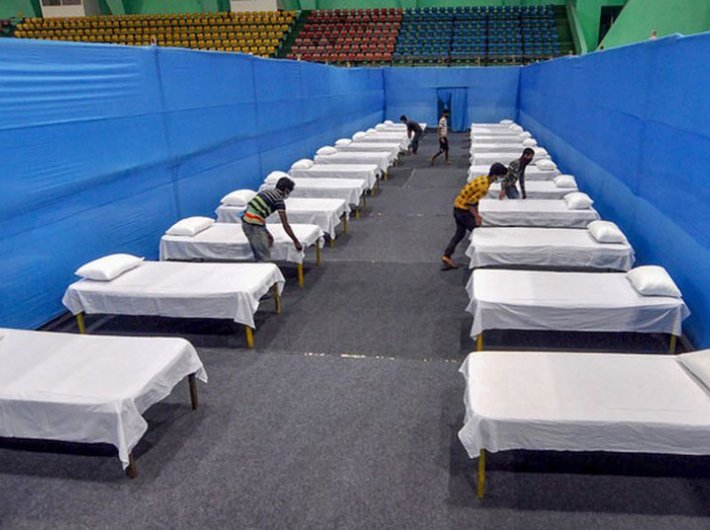To take speedy decisions on research and development for Sars-Cov-2 virus and COVID-19, the government has constituted a Science and Technology Empowered Committee.
The committee, set up on March 29 and chaired by Niti Aayog member, professor Vinod Paul and professor K Vijay Raghavan, principal scientific adviser to the government of India, has been set up for coordination among science agencies, scientists, industries and regulatory bodies for taking quick decisions on solutions to the disease.
The committee has given its consent to institutes under DST, DBT, CSIR, DAE, DRDO and Indian institute of science (IISc) to self-assess and prepare their labs for research and testing through standard and rigorous protocol. Testing will be stratified according to priorities set by the ministry of health and family welfare (MoHFW) and ICMR and research too will be stratified into short and mid-term returns.
Labs at DST- Sri Chitra Institute of Medical Sciences, Thiruvananthapuram, DBT-Rajiv Gandhi Centre for Biotechnology, Thiruvananthapuram, CSIR- Centre for Cellular and Molecular Biology (CCMB), Hyderabad, DAE-Tata Memorial Hospital, Mumbai have already been notified as testing labs by ICMR. Labs having required infrastructure and capacity to carry out tests are being readied and scientific preparedness for testing large volumes of patients is being put into place.
All scientific institutions under various ministries and departments have together initiated multidisciplinary projects for- 1. repurposing of drugs and addressing regulatory and legal processes, 2. mathematical models to track disease spread and models to predict the medical equipment and auxiliary requirements of the COVID-19 and 3. manufacturing of test kits and ventilators in India.
The secretary, department of science and technology (DST), secretary, department of biotechnology (DBT), secretary, council of scientific and industrial research (CSIR), secretary, ministry of electronics and information technology (MeitY), secretary, department of telecommunications (DoT), secretary, defence research and development organization (DRDO), secretary, ICMR, secretary, science and engineering research board (SERB), directorate general of health services (DGHS) and drug controller general of India (DCGI) are other members of the committee.
Meanwhile, WHO has asked all countries fighting rise in COVID-19 cases to maintain essential services and published a detailed life-saving instruction manual on how to set up and manage treatment centres for Covid-19. The manual covers structural design, infection prevention and control measures and ventilation systems. “WHO is working intensively with several partners to massively increase access to life-saving products, including diagnostics, personal protective equipment, medical oxygen, ventilators and more.”
WHO director general Tedros Adhanom Ghebreyesus said that governments need to ensure the welfare of people who have lost their income and are in need of essential commodities during lockdown periods. “Even though we're in the midst of crisis, essential health services must continue. Babies are still being born, vaccines must still be delivered and people still need life-saving treatment for a range of other diseases”.

